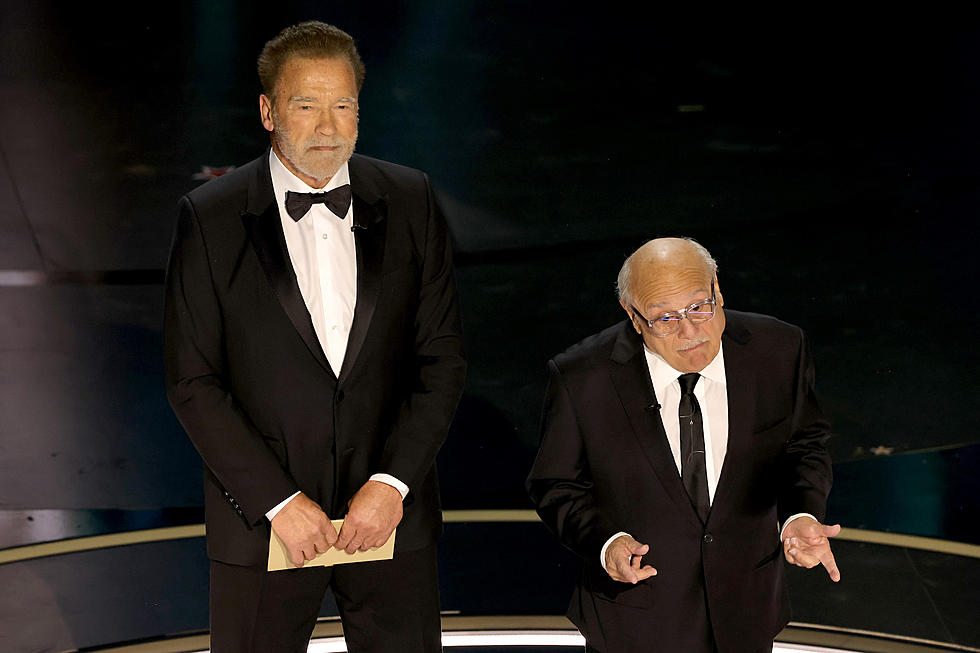
The Dark Knight Forever: Exploring the Key to Batman’s Legacy on His 75th Anniversary
75 years ago today, Batman made his first appearance in Detective Comics #27 and popular culture was never the same. Few characters carry the cultural weight of Gotham City's masked protector and after three quarters of a century, he's still as popular as ever. Trends rise and trends die. Stories become popular and stories vanish over the years. But Batman? Batman is immortal. Happy birthday, Batman.
The most telling thing about Batman is that anyone can tell you what he's all about. People who have never touched a comic book can tell you that young Bruce Wayne decided to devote his life to fighting crime when a thug gunned down his parents in Crime Alley. Someone who has avoided every movie can still work references to the Batmobile, the Joker and Robin into casual conversation. How many characters are instantly and 100% identifiable from the their silhouettes alone? Mickey Mouse and Batman. And maybe Godzilla if you're in the right crowd.
Batman was the creation of artist Bob Kane and writer Bill Finger, with the former taking all of the credit over the years and latter actually being responsible for everything that makes the character who he is. Despite being introduced in a single issue of a crime-fighting anthology comic, Batman struck a chord and within a year, he was starring in his own monthly series. It's telling that the Batman comic series is still being published today. So is Detective Comics, but it's another series exclusively starring the Caped Crusader. But, there's more: DC Comics also publishes 'Batman and Robin', 'Batman: The Dark Knight' and 'Batman: Eternal'. 'Batman Incorporated' was only recently cancelled. All of this comes before noting the spin-off series for Batgirl, Nightwing and Catwoman.
But Batman wouldn't be the force he is today if he simply remained one of the comics industry's most consistently high selling characters. He had his fair share of appearances in silver screen serials throughout the '40s, but the he didn't feel like an inseparable piece of the American landscape until 1966 when Adam West played him on the small screen. The '60s 'Batman' series remains a pop art gem and one of the most clever and amusing shows ever concocted and it did it by showcasing the versatility of the character.
Then 1989 rolled rolled around and Tim Burton's 'Batman' feature film hit the screen and proved that he was here to stay. If you're too young to have been going to movies during the '80s, ask your older friends about it. You couldn't escape 'Batman' that year and chances are strong that you didn't want to.
Sure, rough years followed. Audiences remain mixed when it comes to 'Batman Returns' and 'Batman Forever,' but 'Batman & Robin' is undisputedly, one of the most loathed films of all time. However, Batman has a knack for coming back after his back has been broken and he topped all of his former successes with 'Batman Begins,' 'The Dark Knight' and 'The Dark Knight Rises.' Like the '89 'Batman,' these weren't just movies -- they were events. For a certain generation, seeing 'The Dark Knight' on IMAX screens is a memory akin to seeing 'Star Wars' or 'Jurassic Park.'
And Batman isn't slowing down. He's finally conquered the world of video games with the hugely successful 'Arkham' series and he's heading back to the TV with 'Gotham,' which will focus on the early days of Batman's number one ally, James Gordon. And lest we forget, Ben Affleck will be putting on the cowl and going toe-to-toe with Superman in the upcoming 'Batman vs. Superman'.
So those are the events as they happened. Batman started off pretty big and he only got bigger. But why? Well, with it being his 75th anniversary and all, there is no better time to take a stab at that question.
Other writers have tackled the subject before and many have discussed the idea of Batman as a power fantasy. Of course young men are attracted to the thought of transforming your mind and body into a weapon capable of being a force to be reckoned with in a world full of superheroes! Deep down, a lot of people secretly relish the thought of having an unlimited budget to build cool gadgets, drive awesome cars and punch bad guys in the face. Most importantly, especially for the young people who discover Batman at the right age, he's a character with a specific goal and mission. He's got his sh*t figured out and, to a young, confused geek who likes to get lost in the world of superheroes and supervillains, that's more attractive than anything.
But, I think the why of Batman's popularity is far simpler than that and explains why people outside of comic readers have become so attached and attracted to the character: he's universally adaptable.
Every iteration of Batman plays with the same basic elements: the suit, the car, the dead parents, the rogue's gallery of twisted villains, the list of powerful and wily allies, etc. However, virtually every iteration of the character across multiple media formats has been wildly different that it's actually impossible to reconcile them when placed side-by-side. Modern comics tend use him to tell grim, dark and violent stories, often with a horror bent. Christopher Nolan's 'Dark Knight' trilogy used him to craft topical thrillers about corruption, economic disparity and when those in power go too far. Tim Burton's 'Batman' is a straight-up twisted fantasy film, complete with impossible architecture and villains. The '60s 'Batman' used the iconography of the character to tell hilarious and absurd comedic stories that played with the inherent absurdity of superheroes. The divide even creeps into the world of animation, where 'Batman: The Animated Series' is committed to telling relatively serious detective stories and 'Batman: The Brave and the Bold' interested in goofy comedy and inspired wackiness.
More than any other superhero, Batman is infinitely versatile. You don't like the brooding, realistic, warrior of the night Batman? That's fine. There's a wisecracking, time-travelling, scientist Batman out there, too. Your kids are a little too young for the darkness and despair of 'The Dark Knight'? Okay. Introduce them to the "Silver Age" comics, with their absurd plots and silly characters. Other DC Comics characters have changed over the years too, but none have scratched so many specific itches or filled so many niches as Batman. Heck, his universality even exists in modern comics, with some writers treating him as a tortured loner and others letting him team up and crack wise with Aquaman.
75 years ago, Batman was born. 75 years from now, most of us will be dead and Batman will still be hanging around ... and they'll look completely different. Because that's what Batman does: he sees a problem and he adapts. He plans ahead. He'll always be able to suit every need asked of him.
More From ScreenCrush









